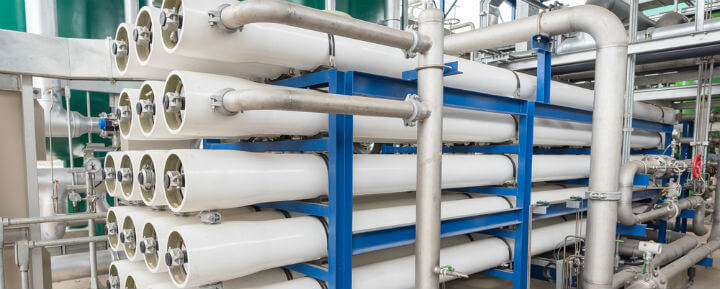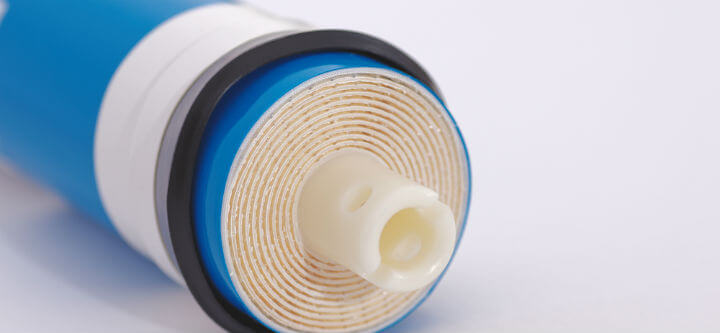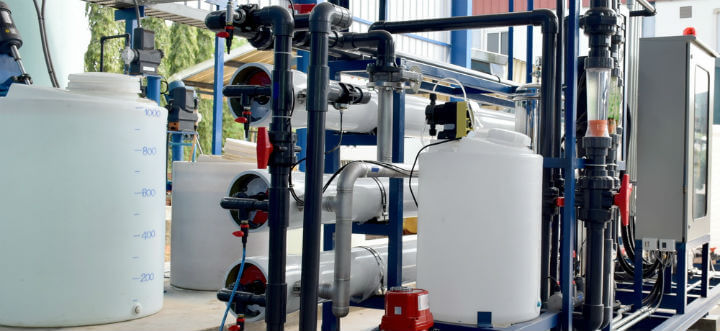Does Reverse Osmosis Remove Minerals from Water?
Written by AOS Treatment Solutions on June 12, 2018

Reverse osmosis is used in water purification to remove contaminants. This article outlines the process and the types of minerals removed.
Reverse Osmosis and How to Remove Minerals from Water
The process works by pushing water through a semipermeable membrane under pressure, which means it also removes minerals including cadmium and fluoride. Because the mineral particles are heavier than water particles, the heaviest components end up being removed via the reverse osmosis process.

What Chemicals Does Reverse Osmosis Remove?
Heavy chemicals in the water supply are removed via reverse osmosis, including perchlorate and prescription drugs which have been disposed of incorrectly.
These can be harmful, which is why municipal water suppliers regularly use water analysis services. Other chemicals include cadmium, lead, and manganese which get into groundwater from industrial sources. Fluoride and calcium are other minerals that can be removed by reverse osmosis.
Does Reverse Osmosis Remove Manganese?
Heavier metals including iron and manganese are filtered during a reverse osmosis process. This removes them from the water supply where the build-up of these minerals can be harmful.
Does Reverse Osmosis Remove Calcium
Concerns have been raised about the use of reverse osmosis in the water purification process, specifically around the removal of minerals and the potential impact on health.
In particular, the World Health Organization has raised concerns about calcium and magnesium being removed, and potential detrimental effects on health. These concerns center on whether additional magnesium and calcium in water can reduce the incidence of cardiovascular disease.
However, most magnesium and calcium is likely to come from food consumption and not the water supply. Therefore, concerns about its removal need to be balanced with the amount someone is expected to ingest from food.
There is a need for municipal companies to have a robust purification system in place to manage the reverse osmosis water mineral content to remove contaminants and unfortunately this includes minerals.
Does Reverse Osmosis Remove Hardness in Water?

Hard water has a high mineral content which is generally rich in calcium and magnesium, which is beneficial to health but can cause damage to the filtration system in a reverse osmosis system. This type of damage affects the semi-permeable membrane through scaling. Iron is a specific mineral that leads to scaling in hard water. If it is not kept in check, this can result in a system shutdown.
A damaged membrane leads to leaking of minerals and other particles into the water supply which leads to contamination. The scaling effect in hard water areas means the system must be checked regularly by engineers.
Does Reverse Osmosis Remove Salt?
Salt in water is another mineral that can lead to scaling. This occurs when ions bind in the water, causing a build-up of solids that impact a reverse osmosis mechanism. Increases in temperature can affect salt build up, causing more problems. Regular maintenance to monitor water quality is vital to prevent problems from occurring with the reverse osmosis system and subsequent water supply. Using antiscalants and dispersants is an effective way of descaling by delaying precipitation in the reverse osmosis mechanism.
What Can Municipal Water Systems Do to Maintain High-Quality Water Supplies?
A municipal water system must be maintained to a high standard. For those systems using reverse osmosis in a hard water area, having regular quality checks and maintenance is vital to adequate water and wastewater treatment services.
Testing the water quality and content is vital as well, so municipal areas are assured that contaminants are being efficiently removed. AOS specializes in municipal water treatment solutions and can ensure that a municipal district has a safe water supply.
Contact AOS Treatment Solutions today to discuss your requirements today.

